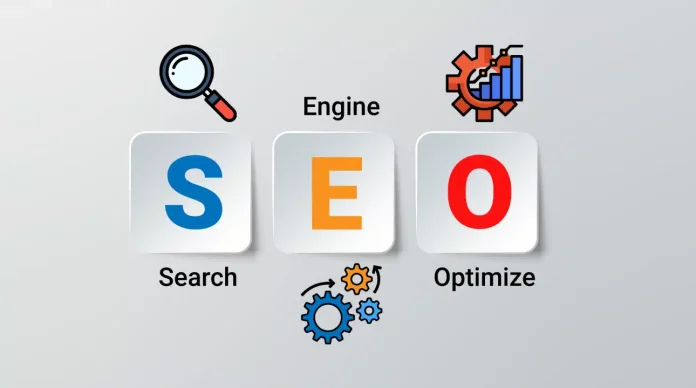Search engine optimization (SEO) is a crucial strategy for businesses looking to improve their online visibility and attract more organic traffic. SEO is typically divided into two key components: on-page SEO and off-page SEO. Both play essential roles in improving search rankings, but they focus on different aspects of optimization.
Working with a professional SEO company in NYC ensures that businesses implement a well-rounded SEO strategy that includes both on-page and off-page techniques. These experts understand how to balance the two approaches to achieve the best possible search rankings and long-term success.
What is On-Page SEO?
On-page SEO refers to the optimization strategies applied directly to a website to improve its search rankings. It focuses on elements that website owners have control over, including content, HTML structure, and site performance. The goal of on-page SEO is to make a website more relevant and user-friendly, ensuring that search engines can easily crawl and index it.
Key On-Page SEO Factors
1. High-Quality Content
Content is the backbone of on-page SEO. Search engines prioritize websites that provide valuable, relevant, and informative content. Businesses must create high-quality blog posts, product descriptions, and service pages that answer users’ queries. Content should also be optimized with relevant keywords, but keyword stuffing should be avoided.
2. Keyword Optimization
Using the right keywords is essential for improving search rankings. Keyword research helps identify the terms and phrases potential customers are searching for. These keywords should be naturally integrated into titles, headings, meta descriptions, and throughout the content.
3. Meta Tags and Descriptions
Meta titles and descriptions help search engines understand what a webpage is about. Well-crafted meta tags should include targeted keywords and provide a clear summary of the page’s content. A compelling meta description can also increase click-through rates from search engine results pages.
4. URL Structure
SEO-friendly URLs are short, descriptive, and include relevant keywords. Clean URLs improve both user experience and search engine indexing. For example, a structured URL like www.example.com/nyc-seo-services is better than www.example.com/page12345.
5. Internal Linking
Internal links connect different pages within a website, helping users navigate easily and allowing search engines to understand the site’s structure. A strong internal linking strategy distributes link equity and boosts the rankings of important pages.
6. Mobile-Friendliness
With a large number of searches happening on mobile devices, having a responsive website is crucial. Google prioritizes mobile-friendly websites in its rankings, making mobile optimization an important aspect of on-page SEO.
7. Page Speed Optimization
A slow website negatively impacts user experience and search rankings. Optimizing images, leveraging browser caching, and minimizing unnecessary code can significantly improve page load times.
8. Schema Markup
Schema markup is a type of structured data that helps search engines understand the content of a webpage. Implementing schema markup can enhance search results with rich snippets, improving click-through rates.
What is Off-Page SEO?
Off-page SEO refers to activities that take place outside a website to improve its search rankings. These strategies focus on building credibility, authority, and trustworthiness in the eyes of search engines.
Key Off-Page SEO Factors
1. Link Building
Backlinks from authoritative websites signal to search engines that a site is trustworthy and valuable. The quality of backlinks is more important than quantity, so businesses should focus on earning links from reputable sources through guest blogging, digital PR, and influencer outreach.
2. Social Media Engagement
While social media signals are not direct ranking factors, they can indirectly impact SEO by increasing brand awareness and driving traffic to a website. A strong social media presence encourages content sharing and can generate natural backlinks.
3. Local SEO and Google My Business
For businesses in NYC, local SEO is essential. Optimizing a Google My Business profile helps businesses appear in local search results and Google Maps. Consistent NAP (name, address, phone number) information across business directories improves local search rankings.
4. Brand Mentions
Even if a website is not directly linked, brand mentions on authoritative sites contribute to SEO. Positive online mentions improve brand credibility and search engine trust.
5. Online Reviews and Reputation Management
Customer reviews on platforms like Google, Yelp, and industry-specific directories influence local search rankings. Encouraging satisfied customers to leave positive reviews can enhance a business’s reputation and SEO performance.
6. Guest Blogging and Content Outreach
Publishing guest posts on relevant industry websites helps businesses earn valuable backlinks and establish authority. Contributing high-quality content to reputable sites increases brand exposure and referral traffic.
7. Forum and Community Participation
Engaging in industry-related forums, Q&A sites like Quora, and community discussions can help build authority. Providing valuable insights and linking back to relevant content on a business’s website can generate organic traffic.
The Balance Between On-Page and Off-Page SEO
Both on-page and off-page SEO are necessary for a successful SEO strategy. On-page SEO ensures a website is optimized for search engines and user experience, while off-page SEO builds credibility and authority.
An experienced SEO company focuses on a balanced approach, ensuring that technical on-page elements are in place while actively working on off-page efforts to improve domain authority. A well-optimized website combined with a strong backlink profile can lead to higher search rankings and increased organic traffic.
Conclusion
Understanding the differences between on-page and off-page SEO is crucial for businesses aiming to improve their search rankings. On-page SEO focuses on optimizing website content, structure, and performance, while off-page SEO builds credibility through backlinks, social signals, and reputation management.
Partnering with a professional SEO agency ensures that businesses implement both strategies effectively. By leveraging on-page optimizations and off-page authority-building techniques, companies can achieve long-term search engine success and stay ahead in the competitive NYC market.



